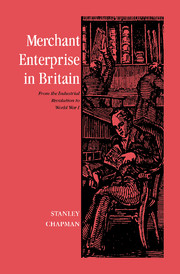Book contents
- Frontmatter
- Contents
- List of figures
- List of tables
- Preface
- Abbreviations used in the footnotes
- Introduction: approaches and concepts
- Part I The setting
- Part II New Streams Of Enterprise
- Part III Response to instant communication
- Part IV Conclusions
- Manuscript sources
- Index of firms and people
- Index of places
- Index of subjects
Preface
Published online by Cambridge University Press: 20 March 2010
- Frontmatter
- Contents
- List of figures
- List of tables
- Preface
- Abbreviations used in the footnotes
- Introduction: approaches and concepts
- Part I The setting
- Part II New Streams Of Enterprise
- Part III Response to instant communication
- Part IV Conclusions
- Manuscript sources
- Index of firms and people
- Index of places
- Index of subjects
Summary
During the 1980s the opening and listing of the archives of the Bank of England and a variety of other City of London banks and trading groups made it possible, for the first time, to contemplate filling the major gap in our knowledge of modern British economic history, that of the financial and trading sector. Good materials had been available in Glasgow and Liverpool for some years and recently greatly strengthened with the build-up of Glasgow University's collection of business archives, but London was always the dominant centre of finance and trade. Drawing on some of this rich store I was able to write The Rise of Merchant Banking (Allen & Unwin 1984). The present volume was conceived as a complement to this earlier work.
It soon became clear that British merchant enterprise by no means covered all merchants active in Britain. Many of the foremost trading houses from the eighteenth century to World War I were of foreign origin, with cultures and loyalties that were not particularly oriented to English traditions and outlook. The study quickly became one of continental, Ottoman, American and Empire enterprise competing with the ‘home grown’ firms. Moreover the British group displayed the additional diversity generated by the prominent roles of the Scots, Ulstermen and English Nonconformists in trade, as well as the different approaches of those who came out of northern and midlands industry. Long residence abroad, particularly in British India and South Africa, created the yet different traditions of the nabobs and randlords.
- Type
- Chapter
- Information
- Merchant Enterprise in BritainFrom the Industrial Revolution to World War I, pp. xiii - xvPublisher: Cambridge University PressPrint publication year: 1992

